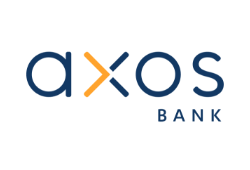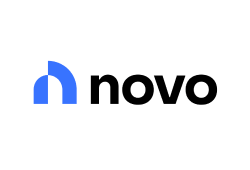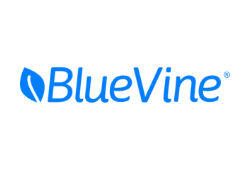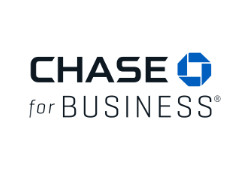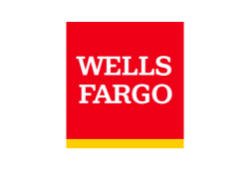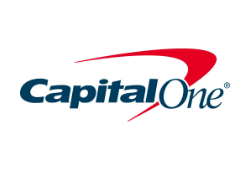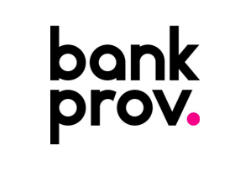Best Banks for Small Businesses
We’ve compiled a list of the leading US banks, analyzed their offer, and reviewed their services. The focus will primarily be on business checking accounts, but we’ll also briefly mention the rest of their offer. Finally, we’ll talk a little about the factors you should consider when choosing a business bank.
Best Banks for Small Businesses in June 2025
Axos Bank
- $0 monthly and balance fees on a Basic Business Checking account
- Unlimited ATM fee refunds and cash deposits
- Welcome bonus for new business checking accounts
- QuickBooks Integration
Novo
- No monthly, transaction, ACH transfer, or incoming wire fees
- Refundable ATM charges
- Excellent business app integrations and well-designed mobile app
BlueVine
- Best-in-class APY offer on the checking account
- Unlimited monthly transactions
- Two-factor authentication for all accounts
- FDIC insurance up to $3 million
Chase Business Complete Banking®
- $300 for opening a new Chase Business Complete Banking® account with qualifying activities
- Excellent selection of business cards
- Waivable monthly checking fee
Wells Fargo
- $25 to open any of the checking accounts
- Nearly 5,000 branches and more than 12,000 ATMs across the US
- Excellent online and mobile banking services
Capital One
- Free debit cards and online bill payment
- Unlimited digital transactions
- Access to over 70,000 ATMs across the US
BankProv
- Five different business checking accounts
- 100% insured deposits
- Excellent account security features
Top 5 Banks for Small Businesses - Our Picks for 2025:
Axos Bank - Best for fee-free money deposits
BlueVine - Best for checking account APY
Chase for Business - Best for an account-opening bonus
BankProv - Best for unlimited deposit insurance
Novo - Best for fee-free banking
How To Choose a Bank for Your Small Business
There are many factors to consider when looking for banks to open a business account at. Larger ones typically have several checking accounts and offer a variety of business credit cards, so their offer may initially seem a bit overwhelming. And that’s without getting into savings accounts, various business loans, or merchant services such as cash advances.
To simplify things, we’ve made a checklist of factors you should look into when picking a bank for your small business. You should consider all of these before making a decision.
Annual Percentage Yield
The annual percentage yield (APY) refers to the rate of return earned on deposited funds while factoring in compounded interest. While this feature is rare on checking accounts, you’ll often find it on business savings accounts.
It’s worth considering if you are looking to earn some money on your business account but expect to see much better deals on dedicated savings accounts.
Opening and Ongoing Costs
There are plenty of costs associated with opening and maintaining a bank account. Some common charges on business checking accounts include overdraft fees, monthly maintenance fees, minimum balance fees, and transaction fees.
Many banks also charge stop payments, wire transfers, and returned checks, though there are often ways to avoid these fees. Finally, you’ll often be required to have an opening deposit and keep a certain balance at the end of each month to avoid paying penalties.
That said, you don’t always have to pay for a business checking account. Understanding the fees associated with your chosen banking services allows you to keep more of that hard-earned money in your pocket.
Bank Type and Branch/ATM Availability
When opening a bank account, you may want to think about what type of bank will work best for you. Online banks typically have faster transactions but generally don’t support cash deposits.
This ties into the number of branches and ATMs across the country. If your business mainly operates online, chances are you won’t need to visit your bank often, but it’s still handy to know that’s an option.
The same goes for ATMs: larger brick-and-mortar bank chains have thousands of them you can use fee-free across all major cities, while online banks might partner up with traditional operators or give cash back on ATM fees under certain conditions.
Fund and Account Security
Here’s another essential factor to consider in small business banking: how secure is your account from hacking, and how protected are your funds?
Modern banks typically use advanced encryption techniques and multi-factor authentication, with internet-only banks typically having more sophisticated online security measures. As for fund insurance, the FDIC covers deposits up to $250,000, but some banks offer fund insurance beyond that.
Think about the amount you want to insure and the type of transactions your company will mainly conduct to choose the best option for your business.
Customer Service and Reputation
When picking a bank for your business, it’s essential to know that you’re dealing with a reputable company that offers high-quality customer support. Whether it’s a proven bank with centuries of experience or an online-only fintech company, you’ll want to hear what people say about their offer.
Check out the BBB website and Trustpilot to get an idea about the bank’s reputation.
More importantly, you’ll want to be clear on the methods for contacting your financial institution of choice in case of an emergency or if you need to clear something up about accounts or services. 24/7 customer support is ideal, as is having live agents to talk to, whether through a toll-free phone line or live chat on the website.
Failing everything else, the bank should at least have a dedicated email response team so that you don’t have to wait for more than a few hours on a reply.
Additional Features and Services
Small company owners will primarily be interested in a business interest checking or business savings account.
You may also want to check out the bank’s loans, mortgages, or business credit cards. Many small business banks incentivize their users to use several banking services at once, so it’s worth checking out the benefits of doing so.
You should also look into the quality-of-life features of your chosen bank. Does it offer mobile and online banking? Are there special rewards for signing up or linking several bank accounts? While not a priority, these bonus perks can often tip the scales when choosing between banks with similar offers.

